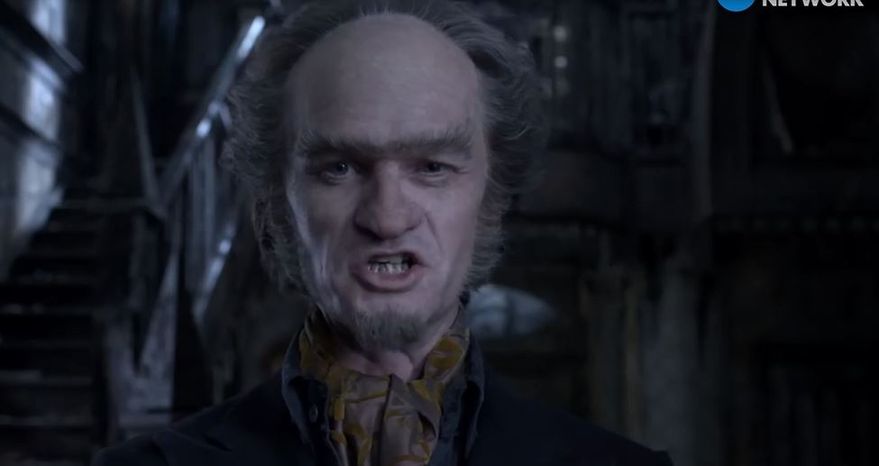Look Away, Look Away: What You Should Know About Netflix’s “A Series of Unfortunate Events”
Jan 23, 2017 • Kirsten Aseoche

Jan 23, 2017 • Kirsten Aseoche
You better look away look away, because this 8list might ruin your day. Unless you like having your day stumped, then this show will definitely get you pumped.
Spoilers ahead.
Netflix’s A Series of Unfortunate Events, having been recently released on January, Friday the 13th, brings to light the dark lives of the Baudelaire children after their parents (spoiler alert) perished in a fire. A series of unfortunate events (of course) follows, that lead to their lives becoming “dreadful, melancholic, and calamitous—a word which here means dreadful and melancholic.”
If you listen closely, you’ll keep hearing people reference things that could be quickly abbreviated into V.F.D., such as a vigorously fixed destination, a verified film discount, the Very Fancy Door, some very fresh dill, and a Verified Functional Dictionary.
While that might seem weird to you, it’s too soon to say what these various foreshadowed declarations are.
During the opening theme, someone is pinning up a map that connects everything together to solve the mystery and retell the story of the Baudelaire children. There are many hints to the progress of the story and the ultimate end of it in the map, but there isn’t anything explicitly stating what’s meant to happen next, making everything confusing.
By the end of the opening, though, everything seems to boil down to one man and one man alone:
From the start of the bad beginning of the Baudelaire children’s lives as orphans, a man named Count Olaf (played by Neil Patrick Harris) comes into their lives and plots to steal the Baudelaire fortune from the children, making their lives more miserable as the series progresses. He doesn’t even stop to think about the lives of other people, actually killing them if he has to.
And, well, if you think he’s just terrible….. Then you haven’t the faintest idea.
C’mon; their parents literally just died from a fire.
As orphans, they’re constantly being hunted down by Count Olaf and become witnesses to several heinous crimes committed by him and his troupes. Their lives become miserable, and it’s best to just look away.
When we first hear the word ‘lemony’ not spoken by the narrator himself, Count Olaf orders his henchman to never say that word again. This is a heavy reference to the writer and narrator of the books, Lemony Snicket (played by Patrick Warburton), who also happens to be one of Count Olaf’s nemeses. But the true background of Lemony Snicket is unknown—we only ever know him as the storyteller for the Baudelaire children.
Whenever he appears, Snicket is shown to just roam around the scene and explain events, or narrate as if he were writing a book out-loud. Yet we never actually see him interact with anything else other than himself, making him the personification of an omniscient view or a third-person-view.
He lives right outside the lives of the Baudelaire children.
Violet, Klaus, and Sunny are, as stated, orphaned children. Violet, the eldest, is an inventor; Klaus, the only boy, is a bookworm; and Sunny, an infant, has 4 sharp teeth that could cut through anything.
They only have each other, as their lives become more and more miserable; but it’s because they have each other that their lives become a complete misery—if they hadn’t been alive and well together, they wouldn’t have to live through the dreadful things Count Olaf did to try and steal their inherited fortune.
But if you’ve read this far, you probably wouldn’t want to know more of those dreadful things that happened to the Baudelaire children or anything about Lemony Snicket, because “this show will wreck your evening, your whole life and your day and every single episode is nothing but dismay”, so you better “look away, look away, look away.”
What do you think about Netflix’s adaptation of this series? Let us know below!
Input your search keywords and press Enter.
